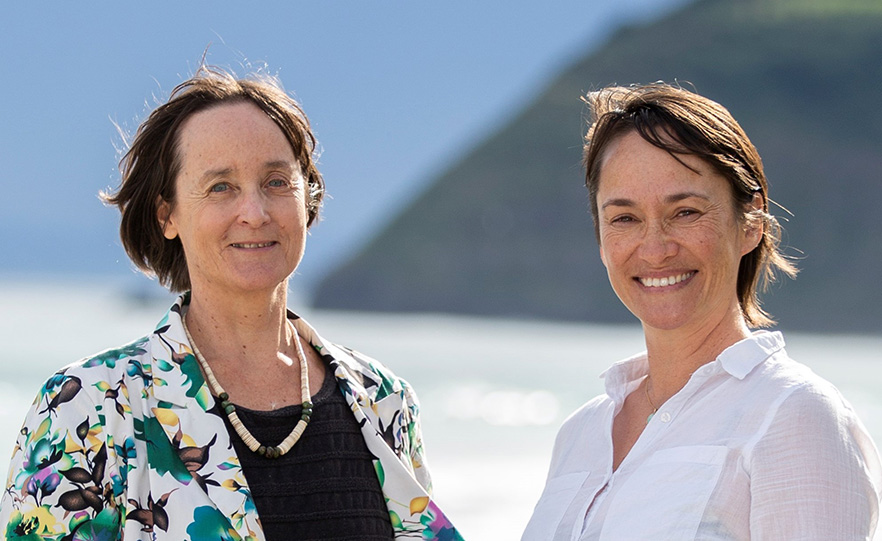
Professors Janet Stephenson and Merata Kawharu.
As the world struggles to take meaningful action on climate change, University of Otago researchers are studying how mana whenua and local authorities are stepping up to help their communities.
Professor Janet Stephenson, of the Centre for Sustainability, says climate change impacts are more severe than had been anticipated and the window for action is increasingly shrinking.
“Impacts are happening sooner than was anticipated and are creating unprecedented challenges for mana whenua and local authorities – from loss of infrastructure to weather bombs affecting mahinga kai and coastal erosion.
“We are entering a new era of decision making under uncertainty – there is going to be no more normal when it comes to sea level rise, weather events, floods, and droughts,” she says.
Because of their important relationship to place and people, mana whenua and local authorities face an unprecedented climate change adaptation challenge in terms of governance and decision making.
“They need to adapt both internally and externally. Despite them feeling uncertain and unguided, it is awesome that many are 'just doing it', innovating and experimenting to suit their community's needs.”
Some of these initiatives include Ngāi Tahu developing a climate strategy; councils allocating funding for new infrastructure and removal of old coastal landfills; planting of native species for climate mitigation and environment restoration; developing community gardens and orchards for food security; and the Dunedin City Council's community engagement on the St Clair to St Kilda Coastal Plan.
In order to better understand what is happening on the ground, and how it could help guide other groups, Professor Stephenson is co-leading a two-year project, funded by the Deep South National Science Challenge, to track the innovations of three mana whenua organisations and seven local authorities in three regions.
“We will follow our research partners' initiatives over the two years, listening to their perspectives on what works and what doesn't, and why. Each community will have unique approaches, but we are likely to also find many similarities,” she says.
Project co-lead Professor Merata Kawharu (Ngāti Whatua), also of the Centre for Sustainability, says one aim is to produce a toolbox of effective governance and management approaches to share with other groups and councils.
Alongside this, the researchers will also support rangatahi to work with their iwi on adaptation strategies. They will provide opportunities for research partners to learn from each other, and for others to learn from their experiences.
“What we learn from these innovations by mana whenua and councils will also be fed through to government agencies developing national policies and legislation.”
Project details:
Learning from innovations and rethinking governance for just and robust adaptation decision-making
Janet Stephenson, Merata Kawharu, Sophie Bond and Gradon Diprose
Funded by: The Deep South National Science Challenge
Innovations for climate adaptation webpage
For more information, please contact:
Professor Janet Stephenson
Centre for Sustainability
University of Otago
Email janet.stephenson@otago.ac.nz
Ellie Rowley
Communications Adviser
External Engagement Division
University of Otago
Mob +64 21 278 8200
Email ellie.rowley@otago.ac.nz
Find an Otago Expert
Use our Media Expertise Database to find an Otago researcher for media comment.